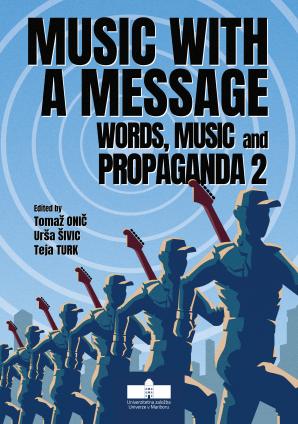Counterpropaganda in Selected Alternative Rock and Metal Music
Synopsis
This article attempts to determine whether we can identify any linguistic differences between songs that are typically considered as propaganda and those considered as counterpropaganda. We analyse a World War I propaganda song (“Over There” by George M. Cohan) and compare it to two rock/metal (counterpropaganda) songs: Muse’s “Uprising” and Gojira’s “Amazonia.” The analysis is done using a finite speech act typology. The findings indicate that propaganda songs utilise a higher percentage of Requests, as the aim of propaganda is often to promote joining some movement or cause. Propaganda typically aims to be familiar, and repetition is used for this purpose: counterpropaganda songs in our analysis are less repetitive compared to propaganda songs. Propaganda and counterpropaganda songs feature the same kinds of Requests, yet the Requests in propaganda songs are unambiguous, concrete and specific, whereas in counterpropaganda songs, they are vague and abstract. Finally, Opines are utilised to a higher degree in counterpropaganda, which could be explained by the fact that Opines are inherently subjective, making them unsuitable for delivering the clear and factual messages required by propaganda.







